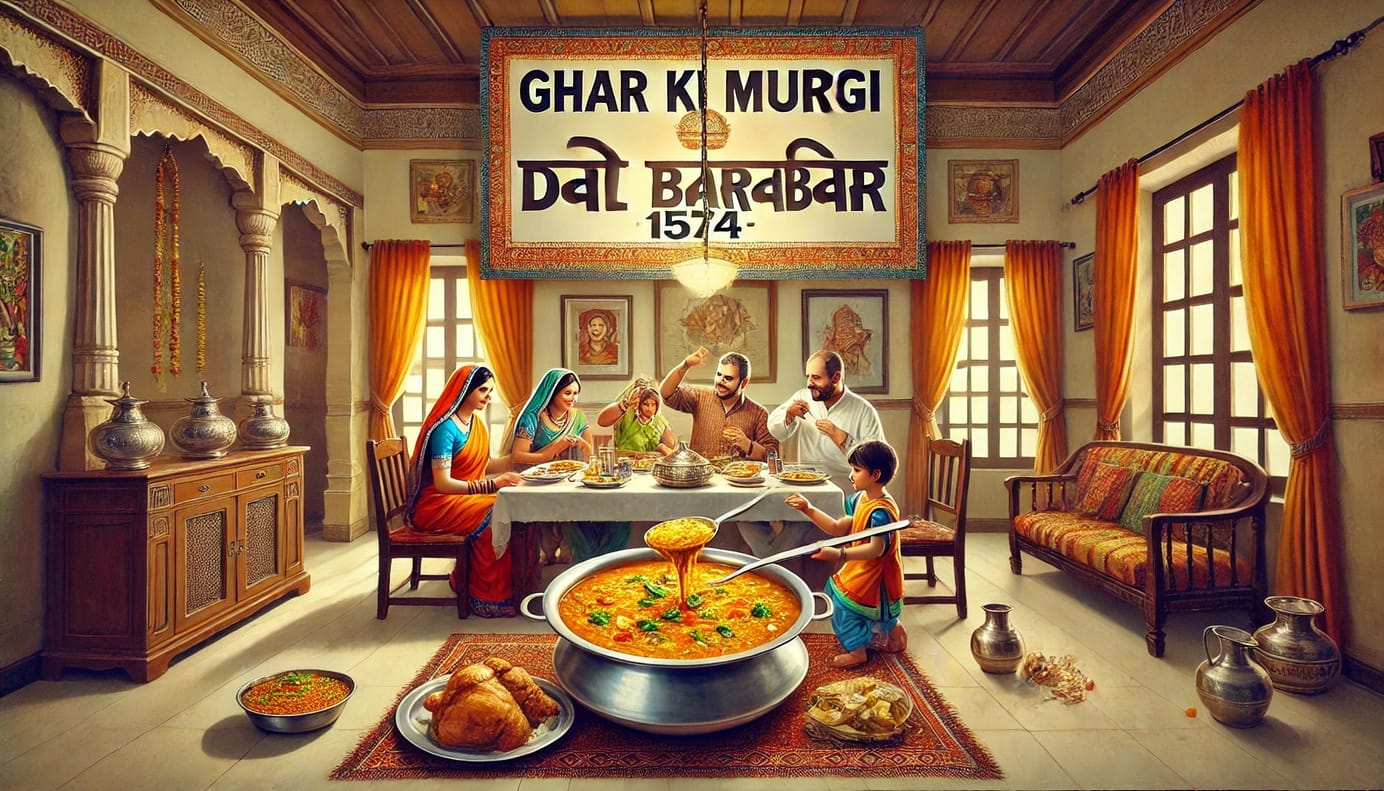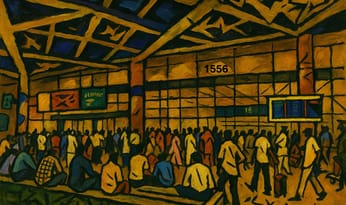Damned if You, Damed if You Don't
The anatomy of a resident doctor strike in India
Background: I wrote this in Mar 2006 during one of the resident doctor strikes. It was published in the Mumbai Mirror on 06th March, 2006 and is available in the Internet Archives.
Here is the text of what I had written.
The resident doctors all over Maharashtra have again gone on strike this week and it's that déjà vu feeling all over again.
Every three-four years, since the early-80s, there has been a strike by resident doctors. The issues are always the same: more money, better working conditions and better accommodation. This time the flash-point though, is the issue of security, due to the increasing incidence of doctor-bashing violence by patients within the hospitals.
Should the resident doctors strike?
Think about living, four to a 150sq feet room, with bed-bugs, poor ventilation, terrible food, unclean water, a 24-hours a day, seven-day a week schedule and the constant threat of work-related diseases such as tuberculosis, HIV and hepatitis B, and now, the threat of violence. For around Rs. 8000/month (<150$). Now think how you would feel if the resident doctor were you, or your son or your daughter.
So why is there such a big issue created when they go on strike?
Because, when the residents strike, more than 50% of the city's population is suddenly deprived of basic and essential medical services. That’s right. 50%. 7 million people. So do read on.
Let’s now understand who these resident doctors are!
Resident doctors are the ones who are training for their specialty MD and MS degrees, after having finished their basic MBBS and internship, in colleges, usually attached to large public hospitals, usually run by the government, e.g. JJ Hospital or by the Municipality, e.g. KEM, Nair and Sion. These hospitals provide health-care virtually free of cost to anyone and everyone, even to those who are not domiciled in Mumbai.
The residents, in theory, are supposed to be “trainees”, “training” in these hospitals to obtain the theoretical and practical knowledge that they need to eventually become qualified, specialized doctors such as surgeons, cardiologists, radiologists, etc. - in reality, the authorities get cheap labor to run these public hospitals. In KEM Hospital alone, there are 700 resident doctors and 400 staff doctors, which means that if the resident doctors aren’t around, at least 60% of the work should still go on. In reality, only 5-10% of the actual work happens, because despite their “student/training” status, they are completely critical to the functioning of these hospitals. Even the “peripheral” hospitals such as Kasturba (opposite the Arthur Road jail), Rajawadi (in Ghatkopar), Bhagwati (in Borivli), etc, stop functioning, because they too completely depend on residents posted in rotation from the central hospitals.
Are the residents then morally justified in striking?
Do you really think that we have never agonized about this? This is a demon that has always haunted us, all through each strike that we’ve ever participated in. I don’t have an answer despite extensive soul-searching, but most of us eventually rationalize this action by transferring accountability onto the authorities, holding them responsible for the strike having happened in the first place.
These strikes are preventable, simply because the demands can easily be met. If the authorities were proactive and tried to solve the residents' problems in time, things would not come to this. Expecting this to happen however, is obviously a pipe dream. Maybe, the residents could go to court, and file a public interest litigation. But from where will the resident doctors get the time, energy and money, required to fight a court case on a daily basis? And so, the only solution that remains, is to go on strike, for which there is at least some concerted and determined effort, manpower and time, if not money, available, for a short period of time.
You would think then that the authorities would want to negotiate with the doctors to resolve the strike. Think again!
Who are the people affected by the strike? It is those people who cannot afford private doctors and hospitals, those who earn less than sustenance level and those who live in slums or on the roads or wherever.
The authorities do not care, since these poor people affected by the strike don't really matter. It is not like the Municipal Mazdoor Union going on strike and winning their demands in 24-48 hours, because no one can stand their garbage not being collected.
Moreover, the resident doctors are eventually doctors, who after a few years are going to be in the top 10% income bracket in the country – subconsciously, this affects the extent of public and press support – the authorities play with this fact and so they wait and threaten, wearing down the patience and enthusiasm of the resident doctors, who after all are educated, intelligent, white-collar individuals, completely unused to this sort of a method of protest.
At the end of a month or 40 days (the usual length of a residents' strike), the strike ends, the weary residents accepting whatever few sops the authorities are willing to give. And the authorities magnanimously tell the striking doctors that they will not penalize them for not having worked for one month and will allow them to keep terms - one of the worst fears resident doctors have, is of losing a six-month term or losing registration. Threaten them with this loss and half of them start thinking of capitulating.
Why don't the residents learn from the past? Because, every three years, a new crop of residents is in place. And the lessons of the past are forgotten.
The anatomy of the strike, thus remains the same.
First week - enthusiasm, rallies, hunger strikes, street plays
Second week - some of the less enthusiastic residents go home, some default, some start studying for their exams on the sly
Third week - government threatens loss of term and enthusiasm dips.
Fourth week - most residents want to get back to work.
Fifth week - strike is over
But things don’t end here. Like a tragi-comedy, even after an agreement is finally struck, the authorities do not always fulfill the terms of the agreement. Follow-up by MARD (Maharashtra Association of Medical Doctors), after a strike, is extremely poor due to the fact that the doctors get extremely busy, working, learning and reading for their exams and they are extremely mobile, changing hospitals and rotations all the time. The authorities know this as well and can play around with the terms and conditions any way they want…until the ground is laid for the next strike about three years later. And everything comes full cycle.
Damned if you do, damned if you don't.
Bhavin's Writings Newsletter
Join the newsletter to receive the latest updates in your inbox.




